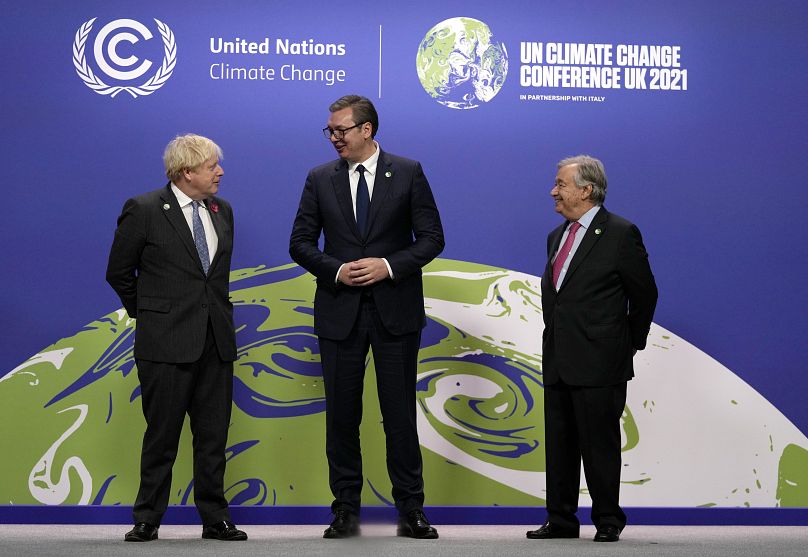For two consecutive weekends, thousands of protesters in Belgrade and other Serbian towns have blocked main roads and bridges to decry the planned lithium mine near Loznica, close to the border with Bosnia and Herzegovina.
Trying to defuse large protests by environmentalists, Serbia’s populist government decided on Wednesday to reconsider two key laws that would help mining giant Rio Tinto launch a lithium mine in western Serbia.
For two consecutive weekends, thousands of protesters in Belgrade and other Serbian towns have blocked main roads and bridges to decry the planned lithium mine near Loznica, close to the border with Bosnia and Herzegovina.
The protests are the biggest challenge yet to the increasingly autocratic rule of President Aleksandar Vučić, who has denounced the road blockades as illegal and claimed they are being financed from abroad to destabilise the Balkan country.
Vučić said the decision to reconsider the laws does not represent his "defeat and weakness" or his caving in to pressure from the protesters "who want my head."
"I apologise to citizens for the terror of irresponsible people," Vučić said at a press conference on Wednesday evening, adding that he expects more protests despite the law suspension.
He also criticised the lawmakers, stating that "covid [measures] should not be an excuse" for the lack of a public discussion prior to the laws being passed.
"Everybody is inflating the attendance numbers at their rallies — from the ruling party to the opposition. Covid doesn’t pose a problem for that, but it does for a public discussion,” Vučić added.
Protests to continue
Serbian environmental groups and civil society organisations were angry that Serbian authorities raised the referendum threshold and wrote another law that would lead to the swift expropriation of private property near major construction projects.
Activists, loosely gathered in a group called Ekološki ustanak ("Ecological Uprising") argue this would pave the way for Rio Tinto to quickly launch the lithium mine.
They have announced a new round of protests for Saturday. One of the Ekološki ustanak leaders, Đorđe Miketić, told Serbian TV channel N1 on Thursday that this time, the protests will take place in as many as 50 cities and towns across Serbia.
Although MIketić rated the decision to reconsider the two laws as a positive development, he said that "the basic question is whether we can take Vučić for his word".
"I can't — he's calling for dialogue now that we blocked the streets. Why didn't he do that before," he asked.
The Serbian government said in a statement on Wednesday that the expropriation law will be withdrawn for further public discussion while the referendum law would be amended, removing the mandatory registration fee — another matter of contention — and increasing the legally binding validity of the decision reached by referendum to a minimum of four years.
By Thursday morning, amendments to the referendum law were already sent to the country's National Assembly.
Protest organisers have also demanded that the government’s financial deal with Rio Tinto be made public. The multinational company has pledged it will put €2.1 billion into the Serbian lithium mine project.
Throughout its almost 150-year history, Rio Tinto has faced accusations of corruption, environmental degradation, and human rights abuses at its excavation sites.
Lithium, which is used in batteries for electric cars, is considered one of the most sought-after metals of the future as the world shifts to more renewable energy sources.
Environmentalists are also upset in general at the Serbian government’s lack of response to rising pollution in the country, as well as claims of malpractice in other foreign-owned mines and factories across Serbia.












